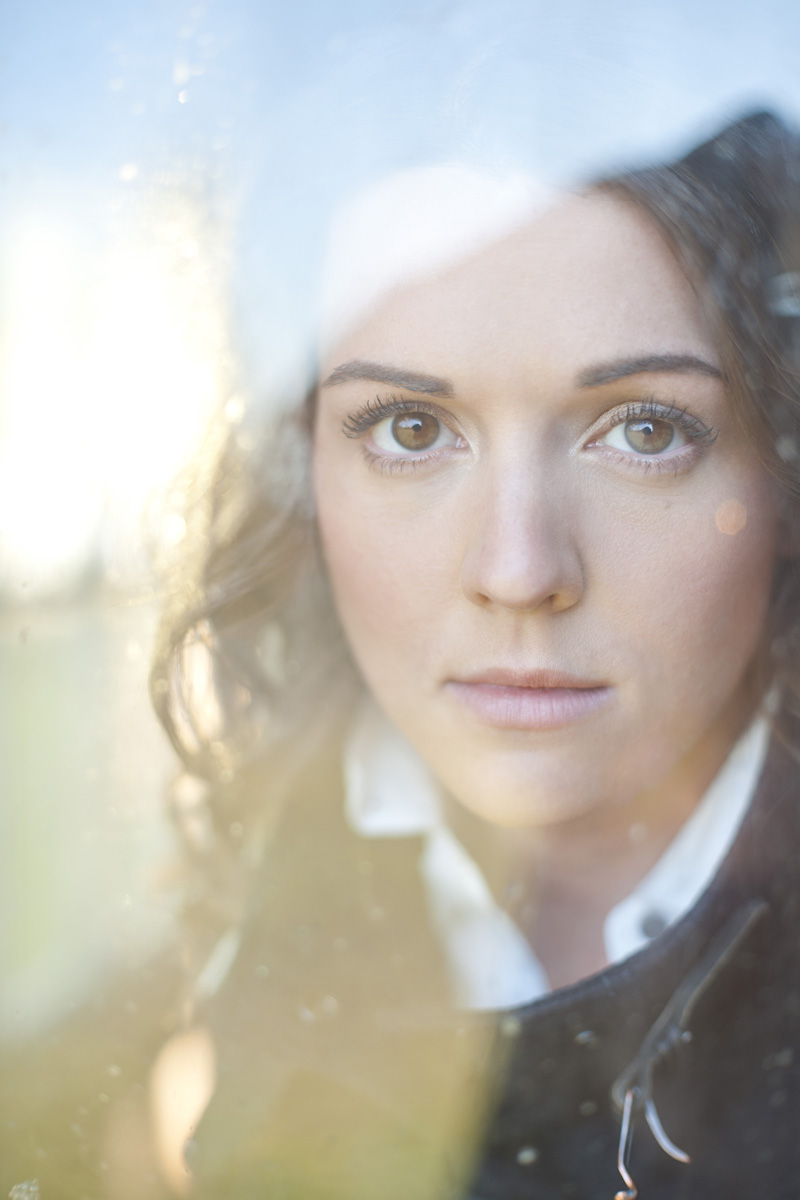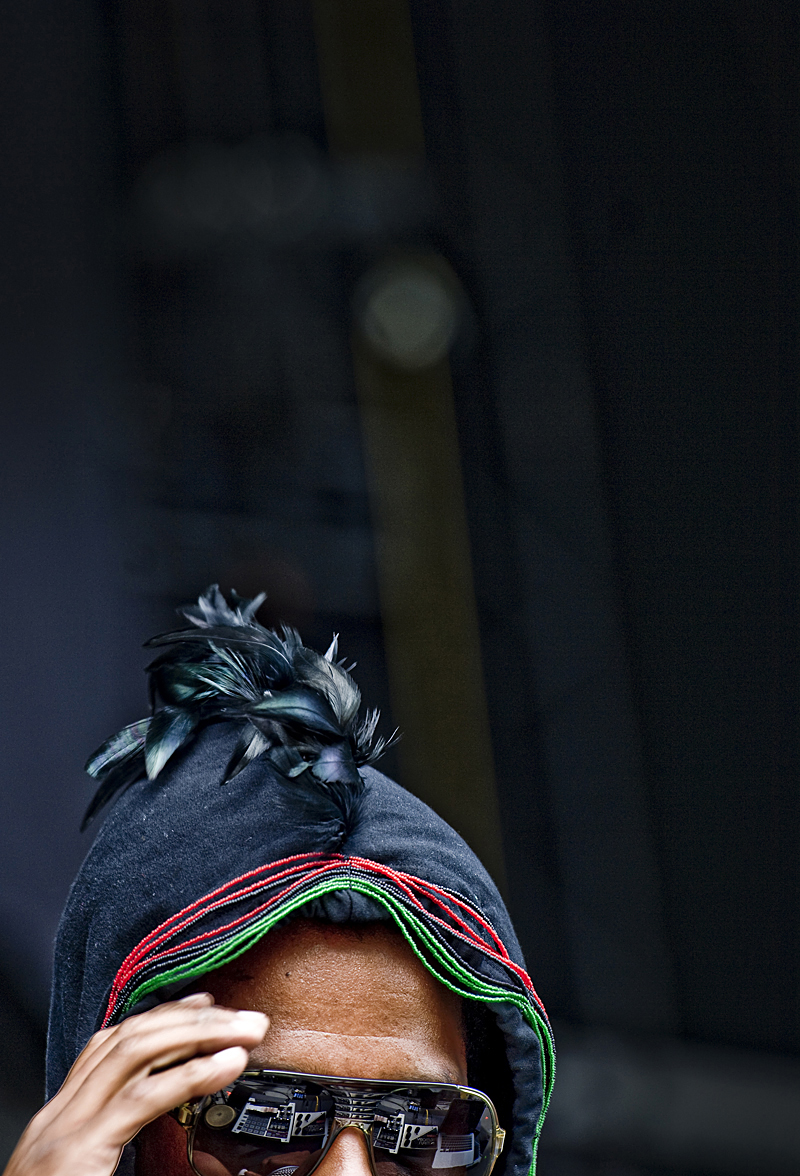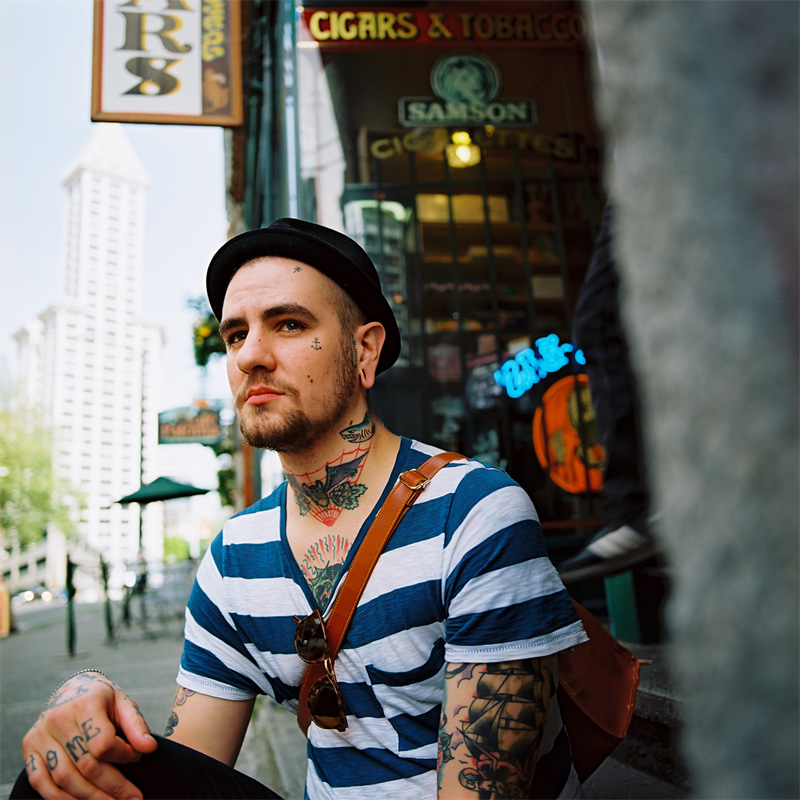Brandi Carlile sings too hard.
She can’t help it. It’s involuntary—a muscle memory that forces her to test the limits of her powerful voice until it bends and cracks, but never breaks. It doesn’t matter if she’s busking at Pike Place Market to an audience of befuddled German tourists or singing “Folsom Prison Blues” to President Obama on the White House lawn: Every time the petite 30-year-old opens her mouth to belt out a note, it’s as if she has inside knowledge that it will be her last performance, and by God she’s going to make it count.
“I’ve never learned how to gauge the importance of things,” Carlile says. “If I have a performance ahead of me, it doesn’t matter if I’m standing on a sidewalk and there’s 10 people there or I’m at Benaroya Hall and there’s 2,500 people.”
From some singers that might sound like humblebrag, but when Carlile says it, it comes off as a legitimate concern. In fact, on more than one occasion she’s nearly blown out her voice singing to a handful of fans at a record-store appearance just hours before playing a much larger—and lucrative—venue.
This mysterious blessing—desperately wanting to please audiences of every size—has always been part of Carlile. Even as a kid, singing in church in her tiny hometown of Ravensdale, Wash., she’d give so much of herself in a performance that her hands would still be shaking hours later. As a teenager she moved on to Seattle bars and coffeehouses, where she would perform as often as six nights a week.
But it was on the streets, more than a decade ago, where Carlile truly honed her craft. “Everything I know about what it takes to get someone to stop what they’re doing and listen to you, I learned while busking at Pike Place,” she says. “Learning how to make someone physically stop their body and watch you play when they need to be somewhere else is what, years later, will be the thing that sets you apart in theaters.”
Carlile’s intense performances have at times been a concern for her bandmates and co-songwriters, Phil and Tim Hanseroth. The twin brothers have been with Carlile for the better part of a decade, and the trio has become inseparable. “I remember thinking ‘Wow, she sings too loud,’ ” Tim says with a chuckle. “It’s just a very powerful and awesome voice.”
Even today, during performances, Phil can spot the audience members hearing her live for the first time. “I can see that on people’s faces from the stage,” he says. “Their mouths are open and they’re kind of in awe.”
Since the early days, the trio has spent the lion’s share of its time on the road, packing in as many as 180 shows per year in support of three studio albums and a live recording. It’s a career that not everyone is cut out for, and Carlile has struggled to find a balance between life on the road and life at home.
She remembers one moment when the pain of being away from her family was almost too much to take. “I woke up on the road and I was upset and didn’t want to be there,” she says. “I missed my mom and dad. All my brothers and sisters were having kids, and I just realized that I’d become really good at being Brandi Carlile and not as good at being just Brandi.”
It’s an ongoing process, but Carlile believes she’s finally figuring it out, finding that sweet spot where the famous singer and “just Brandi” can peacefully coexist. She now brings her parents, siblings, and partner on the road whenever she can, and she takes some of the road home with her when a tour is over.
To that end, Brandi, Phil, and Tim decided to stay closer to home to make their latest album, Bear Creek, named in honor of the Woodinville studio where it was recorded. Until Bear Creek, all the band’s studio albums had been recorded with help from super- producers T Bone Burnett and Rick Rubin, two music-industry giants who have molded the sounds of rock royalty like Roy Orbison, Elton John, and Johnny Cash.
Few artists ever get the chance to work with producers of that caliber, but talented people seem to be drawn to Carlile: She and the Hanseroths have recorded or played with the likes of Dave Matthews, Sheryl Crow, and Red Hot Chili Peppers drummer Chad Smith. “Brandi and the twins made me feel like a part of the band,” Smith says. “They came to my house and we jammed on her songs and I was free to come up with ideas. They were really open to my creative input. I got to play some really subtle, quiet things on her record that I don’t normally do.”
Carlile has nothing but nice things to say about all her famous collaborators, but leaving them behind this time gave her and the twins more freedom. “It’s not because [Burnett and Rubin] are dictators or they’re in this ominous role. It’s purely out of reverence,” she says of her reluctance to experiment in front of the greats. “It’s like I don’t want to try this lame thing in front of you, because I suck and you’re awesome.”
Everyone involved in the process says Bear Creek is their favorite album, but that doesn’t mean Carlile isn’t feeling some anxiety leading up to its June 5 release. “I’m really nervous about this one, because on all three of our albums we’ve had either Rick Rubin or T Bone to stand behind,” she said. “This one is just us, so if people don’t like it, that means that people don’t like what we’ve decided to do on our own for the first time.”
Ravensdale and Seattle are only 30 miles apart, but the cultural gulf is much greater. When Carlile came out at 14, she did so without ever having met another gay person.
At the time there were few political figures she could look to for guidance, so she drew strength and inspiration from the entertainment industry, taking Ellen DeGeneres, Elton John, and the Indigo Girls—whom she’s since had the pleasure of playing with—as examples of how her life could be.
Gay teenagers today have a deeper well of role models to draw from, but nothing’s quite like having the president on your side: Carlile wept when President Obama recently said his opinion on gay marriage had “evolved” to the point where he personally endorsed it.
Obama’s conversion will help, but Carlile says there’s still work to be done. “The federal gay-marriage ban, DOMA, is a civil-rights violation,” she says. “There are people who are dying alone because of it, they’re losing their houses, they’re experiencing exile from their families. It’s a proper, true-blue civil-rights violation that needs to be addressed at the federal level and the state level.”







